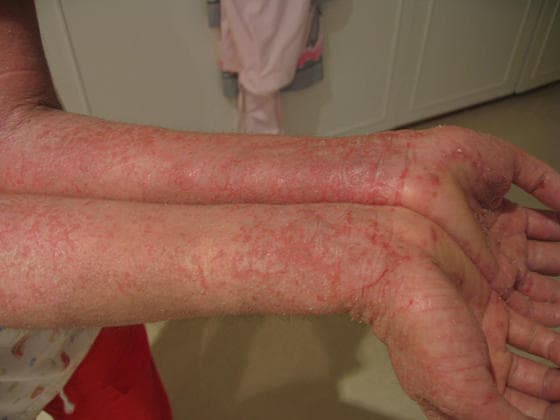 Atopic Dermatitis (AD) is a type of eczema that causes a chronic inflammatory skin disorder. AD can have severe adverse effects on the quality of life of those with the condition. People with AD suffer from chronic dry, itchy skin that is most commonly found in areas on the face, legs and arms. Studies suggest a strong family history in people with this condition.
Atopic Dermatitis (AD) is a type of eczema that causes a chronic inflammatory skin disorder. AD can have severe adverse effects on the quality of life of those with the condition. People with AD suffer from chronic dry, itchy skin that is most commonly found in areas on the face, legs and arms. Studies suggest a strong family history in people with this condition.
Researchers have found that people with AD have an increase in the production of an antibody called IgE. This antibody stimulates the release of mast cells. Mast cells contain tiny granules that contain histamine, a substance that mediates a number of allergies and is responsible for the severe itching associated with AD.
While eczema may seem like a harmless skin condition to some, those who suffer from it know that it can be extremely debilitating and can lead to bacterial infections due to the chronic itching an broken skin.
There are a number of treatments for AD, including antihistamines to relieve the itching, corticosteroids to decrease the overactive immune response and antibiotics to ward off infection. Some people find relief during the summer because of the ultraviolet B light that relieves the symptoms associated with AD. Avoiding irritants, like certain types of soaps and lotions, can also relieve symptoms. If you suffer from AD and it is disrupting your daily routine it is important that you see your physician.
Source: nlm.nih.gov, Photo Credit: skinandeczema.com










